- Home
- Jude Deveraux
Highland Velvet Page 10
Highland Velvet Read online
Page 10
“But Bronwyn did? All she cares about is her clan—and that damned dog of hers.”
Tam smiled at the back of Stephen’s head. “Her father, Jamie, never had any illusions about his daughter. She has a hot temper, and sometimes she’s a wee bit unforgiving.” He ignored the look Stephen gave him. “But, as ye say, she loves the clan. She puts them first, above all else.”
“So she was named laird over her brother.”
“Aye, she was, but it wasn’t as simple as all that. She had an agreement with her father that she was to marry a man he chose. He gave her a choice of three young men, all of them strong and stable, what Bronwyn needed to counteract her quick temper.” Tam tossed the cloth in the basin and sat down again in the chair.
“And the men?” Stephen asked as he put his shirt back on.
“They were killed, all of them, along with Jamie.”
Stephen was quiet for a moment. He knew the four men had been killed by the English. “And was Bronwyn in love with one of them? Had she made her choice?” He looked up when Tam took so long to answer. The man seemed to have aged in the last few minutes.
Tam lifted his head. He tried to move his strong features into a smile. “I like to think she had chosen, that there was one man she loved best.” He took a deep breath and met Stephen’s eyes squarely. “One of the young men killed was my eldest son.”
Stephen stared at the man. They’d only met a few hours ago and now his body ached from Tam’s beating, but he felt he’d known the man for years. The strong jaw, the wide nose, the dark eyes and long gray hair, seemed familiar. He felt Tam’s sorrow at the loss of his son.
“And what of David?” Stephen asked. “Did he step aside gracefully for his little sister?”
Tam snorted, his eyes clearing. “No Scot ever did anything without passion. Davey threatened to divide the clan against his father when Jamie first declared Bronwyn his heir.”
“Did he? What did Bronwyn say?”
Tam put his hand up and laughed. “She told me ye were a stupid man. Ye don’t seem so to me.”
Stephen gave him a look that said what he thought of Bronwyn’s opinion of him.
Tam continued. “Davey did raise some men to follow him, but they wouldn’t fight their own clan members, so they retreated to the hills, where they live in exile.”
“And Bronwyn?”
“The poor darlin’. She adored Davey. I told ye he was a persuasive young man. She told her father she refused to take what was Davey’s by right. But Jamie only laughed at her and asked if she wanted to stand aside and see war within her own clan.”
Stephen stood. “And of course Bronwyn would do what was best for her clan,” he said with a hint of sarcasm.
“Aye, that she would. The girl’d kill herself if she thought the clan could benefit by her death.”
“Or she’d keep herself alive and suffer a fate worse than death.”
Tam gave him a shrewd look. “Aye, she’d do that too.”
Stephen smiled. “You’ll ride with us to Bronwyn’s home?”
Tam stood, moving his great bulk slowly. “I would be honored.”
“Then could I offer you a space in my tent?”
Tam raised one eyebrow. “This is too fancy for me. I need no spoilin’ at this stage in my life. I have my plaid but I thank ye just the same.”
For the first time Stephen became aware of Tam’s dress. He wore a shirt with big, gathered sleeves, and a long, quilted doublet that hung to mid-thigh. On his feet he wore crude, thick shoes over heavy wool hose that reached only to below his knee. His muscular knees were bare. About his shoulders was thrown a long, wide piece of tartan cloth. A thick, wide belt was around the doublet, a dirk at his side.
Tam stood quietly during Stephen’s examination, waiting for the usual English comments.
“You might get cold,” Stephen said.
Tam grinned. “We’re no weak men, we Scots. I’ll be seein’ ye in the mornin’.” He left the tent.
Stephen stood still for a moment, then went to the flap. He gave a low, quiet whistle, and after a moment Rab came to him. “Bronwyn,” he commanded in a quiet voice.
The dog gave a quick lick to Stephen’s hand, then walked toward the dark woods with Stephen following.
Bronwyn was asleep, wrapped tightly and snugly in her plaid. He smiled down at her, pleased with her ability to sleep on the cold, hard, damp ground. He bent and picked her up. Her eyes opened briefly, but he kissed the corner of her mouth and this seemed to reassure her. She snuggled against him as he carried her back to his tent and his bed.
Chapter Six
IT WAS LATE AFTERNOON THE NEXT DAY WHEN THEY reached Larenston Castle. Bronwyn, too impatient to wait any longer, spurred her horse forward.
“Go with her,” Tam urged Stephen. “I’ll wager ye’ve never seen anything like Larenston.”
Curious to see the place that was to become his home, Stephen urged his horse up the grassy hill.
Tam was right: nothing could have prepared him for Larenston. The hill he was on fell away sharply to a wide, deep valley where shaggy cattle grazed and crofters’ cottages rested. A narrow road led through the valley and up the wall on the far side. At the top of the valley wall was a high, flat, red-stone peninsula that jutted out into the sea like a huge armored fist. The peninsula was connected to the mainland by a piece of rock only the width of the narrow road. The sides fell away in sheer drops to the sea. Guarding the entrance to the peninsula were two massive gatehouses, each three stories high.
The castle complex itself consisted of several stone buildings and one enormous hall in the center. There was no surrounding wall. There was no need for one. The sheer cliffs rising out of the sea could be guarded by a few men with bows and arrows.
Bronwyn turned to him, a light in her eyes that he’d never seen before. “It has never been taken,” she said flatly before she started down to the valley below.
Stephen had no idea how they knew she was arriving, but suddenly every door to every cottage opened and people came running toward her, their arms open.
Stephen put his horse to a gallop to keep up with her, then he stood back as she hastily dismounted and began hugging people—men, women, children, even a child’s fat pet goose. He was touched by the scene. He’d seen her only as an angry young woman. She’d told him her clan meant her life to her, but he hadn’t visualized the individuals of the clan. She seemed to know them all personally, called each person’s name, asked after their children, their illnesses, if they had everything they needed.
He lifted himself in the saddle and looked around. The ground was poor. His horse pawed it and turned up little more than peat moss. Yet he saw fields. The barley growing was stunted but it was making an effort. The cottages were small, very poor looking.
It came to Stephen that these people were akin to the serfs on his brother’s estates. Bronwyn owned the land and they farmed it. The very same as the serfs.
He looked back at her as she accepted a piece of cheese from a woman. These people were her serfs, yet she treated them as part of her family. He couldn’t imagine any lady he knew touching a serf much less hugging one. They were calling her Bronwyn, not Lady Bronwyn as was her right.
“Ye are frownin’, lad,” Tam said from beside him. “What of our ways displeases ye?”
Stephen removed his hat and ran his hand through his thick hair. “I think I have some things to learn. I don’t think I understand what a clan is. I thought her clan members were like my men. They’re all from noble houses.”
Tam watched him for a moment. “Clan is a Gaelic word which means children.” His eyes twinkled. “And as for nobility, ye can ask any Scot and he can trace his ancestry back to a Scots king.”
“But the poverty…” Stephen began, then stopped, afraid he’d offended Tam.
Tam’s jaw hardened. “The English and the soil God gave us have made us poor. But ye’d best learn that in Scotland a man’s worth is based on what he is insid
e and not the gold he has in his pocket.”
“Thank you for the advice. I’ll remember it.” He urged his horse forward until he was beside Bronwyn. She gave only a brief look up at him, then turned away to continue listening to an old woman’s talk of some new cloth dyes.
One by one the people began to quieten as they stared up at him. His clothes were very different. Most of the Scotsmen wore nothing on their legs, neither shoes nor hose, while some wore the short hose like Tam’s.
But Stephen’s eyes were on the women. They didn’t have the pale, protected complexions of an English lady but a golden tan from their days out-of-doors. Their eyes sparkled, and their glorious hair hung free to their small, belted waists.
Stephen swung down from his horse, took Bronwyn’s hand tightly in his left one, and extended his right. “Allow me to introduce myself. I’m Stephen Montgomery.”
“An Englishman!” a man near Stephen said, his voice virulent with hatred.
“Aye, an Englishman!” Stephen said with emphasis, his blue eyes hard as he held the Scotsman’s.
“Here!” Tam said. “Leave him be. He attacked me when he thought I meant to harm Bronwyn.”
Several people smiled at the absurdity of this statement. It was obvious who’d won, since Tam weighed at least sixty pounds more than the slim Stephen.
“He won,” Tam said slowly. “He near broke my nose, then took a knife to my throat.”
The people were silent for a moment, as if they didn’t believe Tam.
“Welcome, Stephen,” one of the pretty young women said as she shook his outstretched hand.
Stephen blinked several times at being called by his first name, then he smiled and began shaking more hands.
“It won’t be so easy with my men,” Bronwyn was saying as they rode side by side down the road that connected the peninsula to the mainland. The road was so narrow that only two could ride together. Stephen gave a nervous look at the sheer wall to his left. One wrong move and he could be over the side. Bronwyn didn’t seem to notice their danger, since she’d traveled the narrow road all her life.
“My men are not so easily won as my women,” she said haughtily. She looked at him, saw the way he kept glancing down toward the sea. She smiled and reined her horse sharply toward his.
Stephen’s horse shied away from Bronwyn’s; then when it felt one foot step into the nothing beside the road, it panicked and reared. Stephen fought desperately for a moment to bring the horse under control and keep it from falling off the road and into the nothingness to the side.
“Damn you!” Stephen yelled when he once again had control of the horse.
Bronwyn laughed at him as she looked back over her shoulder. “Are our Scots’ ways too fierce for you?” she taunted.
Stephen dug his spurs into his horse’s side. Bronwyn saw him coming at her but didn’t react fast enough. Stephen grabbed her about the waist and pulled her into the saddle before him.
“Release me!” she demanded. “My men are watching!”
“Good! Then they saw you try to make a fool of me. Or were you hoping I’d fall over the side?”
“And have King Henry’s troops down on us? No, I don’t wish your death on Scots’ soil.”
Stephen gasped at her honesty. “Perhaps I asked for that.” He put a finger to her lips when she started to speak. “But I didn’t ask to be made to look like a fool, so you’ll pay for it. How many other men have ridden into Larenston with the MacArran across their saddle?”
“We have brought back many dead, usually killed by—”
He stopped her words with a kiss.
In spite of herself Bronwyn clung to him, her arms going about his neck, her lips fastening hungrily on his. He pulled her close to him, his hands caressing her back. He could feel her skin, warm through the linen of her shirt. He decided he liked the Scots fashion. The heavy English fabrics hid the feel of a woman’s skin.
Stephen was the first to come out of the trance. He felt they were being watched. He opened his eyes, lifted his head slightly, his lips still on Bronwyn’s. He hadn’t realized that his horse had kept moving up the trail toward the gatehouses. Several men surrounded them, all solemn, serious men, their faces closed, showing no emotion.
“Bronwyn, love,” Stephen said quietly.
Bronwyn reacted immediately. She jerked away from him and looked down at her men. “Douglas,” she whispered and slid down into the man’s waiting arms. One by one she greeted the men.
Stephen dismounted slowly and led his horse as he followed her through the gate. The spiked, iron portcullis was drawn up. The men did not speak to him or look at him, but Stephen was very aware of the way they surrounded him, solemnly, distrustfully. Bronwyn walked ahead of him, laughing with her men, asking questions and receiving answers.
Stephen felt very much the alien, the outsider. The men who walked beside him were wary of him, and he felt their hostility. These men were dressed differently from the men in the valley. Some wore short hose and shoes like Tam, others wore tall boots reaching to their knees. Yet all of them were bare-legged from knee to thigh.
Once through the gate the land was open, and they went past several small buildings to the great house. Stephen recognized the outbuildings as a dairy, a blacksmith’s, stables. There was even a small kitchen garden in one area. A place such as this could withstand a long siege.
The inside of the house was simple and unadorned. The stone walls were damp, unpainted, unpaneled. The small windows let in little light. It was cold inside the castle, colder even than the outside autumn chill, but there was no fire burning.
Bronwyn sat down in an uncushioned chair. “Now, Douglas, tell me of what has been happening.”
Stephen stood to one side, watching. No one asked after her comfort or suggested she should rest.
“The MacGregors have been raiding again. They took six head of cattle two nights ago.”
Bronwyn frowned. She’d deal with the MacGregors later. “What problems inside the clan?”
The man called Douglas tugged absently at a long lock of hair. “The land by the loch is in dispute again. Robert says the salmon are his while Desmond demands he be paid for them.”
“Have they drawn swords yet?” Bronwyn asked.
“No, but they are close. Shall I send some men in to settle this thing? A little blood shed in the right places will stop their quarrels.”
Stephen started to rise. He was used to making decisions of this sort. Tam’s hand on his arm stopped him.
“Can you think of nothing else but your sword arm, Douglas?” she asked angrily. “Did it never occur to you that the men have a reason for their quarrels? Robert has seven children to feed, and Desmond has an ailing wife and no children. Surely there must be a way to solve their problems.”
The men gave her blank looks.
She sighed. “Tell Robert to send his oldest and youngest children to Desmond to foster. Robert will not demand fish that are going to feed his own children, and Desmond’s wife will stop feeling sorry for herself for having no children of her own. Now, what else has happened?”
Stephen smiled at her wisdom. It had come from her love and knowledge of her clan. It was a wonder to see her in her home surroundings. With each passing moment she seemed to come more alive. Her chin no longer jutted forward in anger as she looked at the people around her. Her shoulders were still straight but not as if she meant to ward off blows and angry words.
He watched the faces of the men around her. They respected her, listened to her, and each decision she made was wise and in the best interests of her clan.
“Jamie taught her well,” Tam said quietly.
Stephen nodded. This was a completely different side of her, one he’d never imagined existed. He knew her to be angry, impulsive, filled with hatred, given to using a knife and making impossible demands. He remembered laughing at her when she fell into the stream.
Suddenly he felt a swift wave of jealousy. He’d never seen this wom
an who sat so calmly before these men and made decisions that affected their lives. They knew a side of her that he’d never even guessed at.
Bronwyn rose and walked toward the stairway at the far end of the hall. Stephen followed her. It suddenly occurred to him that the men knew nothing about the backs of her knees. He smiled to himself and felt somewhat reassured.
“Look at him,” Bronwyn said in disgust. It was early morning, the late-autumn air nippy. She looked down at Stephen from the window of their third-story chamber. He was in the courtyard below, he and Chris wearing full armor. The Scotsmen around them stood and stared in sullen silence.
They had been married for two weeks, and during that time Stephen had made a strong effort to train her men in the English way of fighting. She’d stood by while he lectured the men on the importance of protecting themselves. He’d offered to purchase armor for the men who trained the longest and hardest. But the Scotsmen had said little and didn’t seem the least interested in the valuable prize of a suit of hot, heavy armor. They seemed to prefer their own wild costumes, which left half their bodies bare. The only concession toward war Stephen could get them to make was to wear a shirt of chain mail beneath their plaids.
Bronwyn turned away from the window, smiling to herself.
“Ye needn’t be so pleased with yerself,” Morag snapped. “Those men of yers could do with a little work. They sit about too much. Stephen makes them work.”
Bronwyn kept smiling. “He’s an obstinate man. Yesterday he dared to lecture my men that Scotland is a land of unrest, that he is trying to teach them to protect themselves. As if we didn’t know! It’s because of the English that—”
Morag put up her hand in defense. “Ye can try to drive him insane with yer constant lectures, but not me. What is it that upsets ye about him? Is it the way he makes ye cry out at night? Are ye ashamed of yer passion for the enemy?”
“I have no—” Bronwyn began but stopped when she heard the soft click of the door behind Morag. She turned and looked back at Stephen. She had to admit to herself that it upset her the way her body reacted to his touch. Quite often she found herself trembling as soon as the sun began to set. She was careful never to allow Stephen to see the way she felt. She never made an advance toward him or gave a word of affection to him; after all, he was her enemy, he was of the race that killed her father. It was easy to remember that he was her enemy during the day. He dressed as an Englishman, talked as one, thought as one. His difference screamed at her and her men. It was only at night when he touched her that she forgot who he was and who she was.

 Eternity
Eternity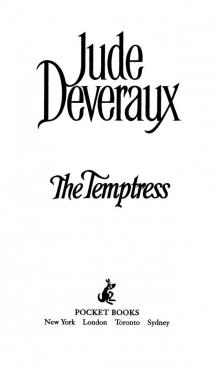 The Temptress
The Temptress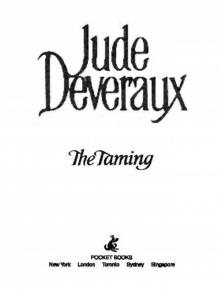 The Taming
The Taming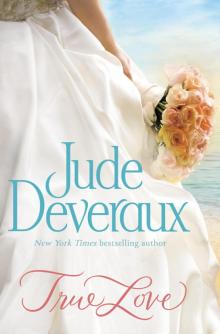 True Love
True Love Forever...
Forever... Lavender Morning
Lavender Morning The Velvet Promise
The Velvet Promise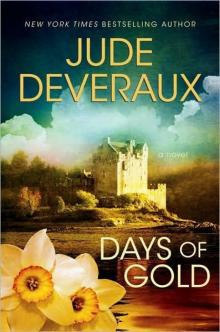 Days of Gold
Days of Gold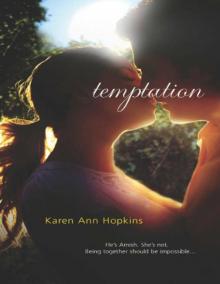 Temptation
Temptation Counterfeit Lady
Counterfeit Lady Twin of Fire
Twin of Fire Remembrance
Remembrance Velvet Angel
Velvet Angel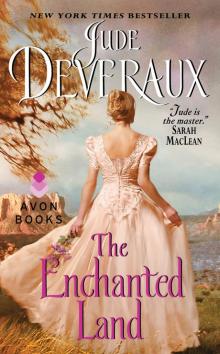 The Enchanted Land
The Enchanted Land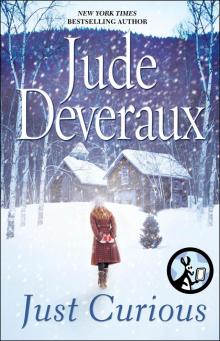 Just Curious
Just Curious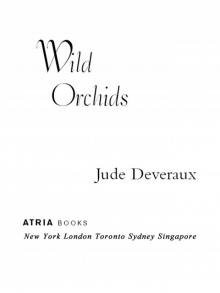 Wild Orchids
Wild Orchids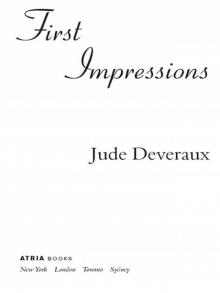 First Impressions
First Impressions Wishes
Wishes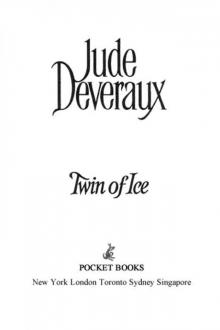 Twin of Ice
Twin of Ice Ever After
Ever After An Angel for Emily
An Angel for Emily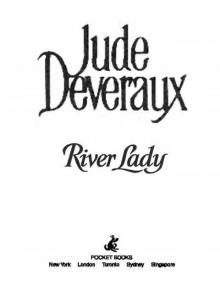 River Lady
River Lady The Invitation
The Invitation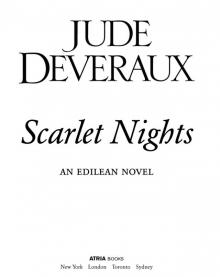 Scarlet Nights
Scarlet Nights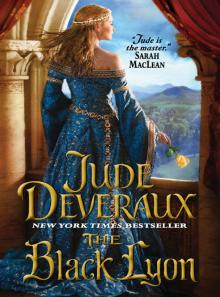 The Black Lyon
The Black Lyon High Tide
High Tide The Girl From Summer Hill
The Girl From Summer Hill Sweetbriar
Sweetbriar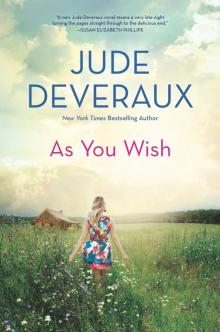 As You Wish
As You Wish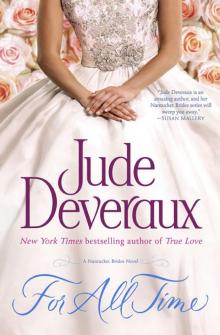 For All Time
For All Time Secrets
Secrets The Blessing
The Blessing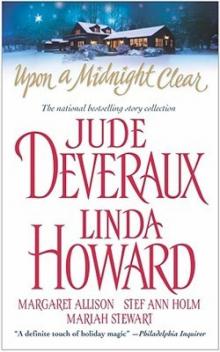 Upon a Midnight Clear
Upon a Midnight Clear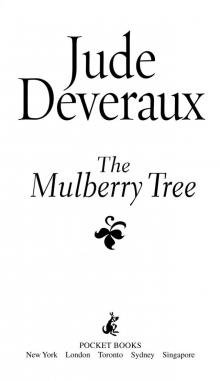 The Mulberry Tree
The Mulberry Tree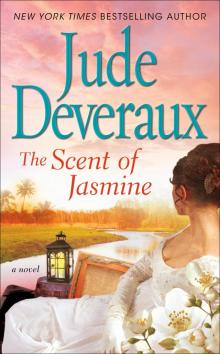 The Scent of Jasmine
The Scent of Jasmine Sweet Liar
Sweet Liar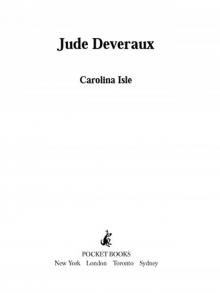 Carolina Isle
Carolina Isle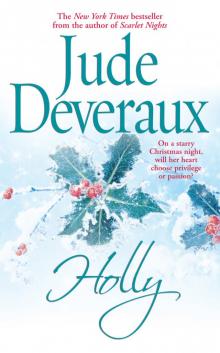 Holly
Holly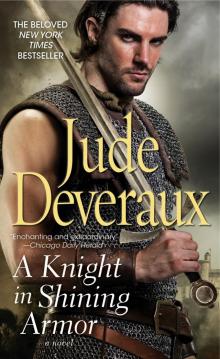 A Knight in Shining Armor
A Knight in Shining Armor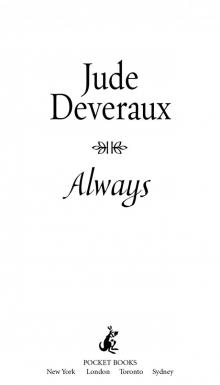 Always
Always The Duchess
The Duchess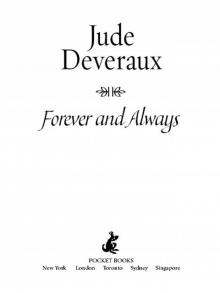 Forever and Always
Forever and Always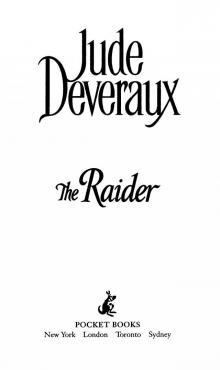 The Raider
The Raider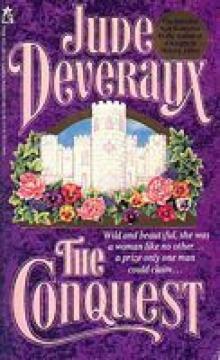 The Conquest
The Conquest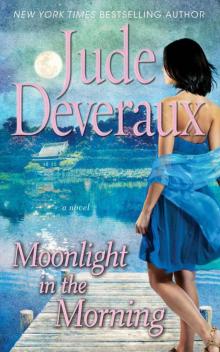 Moonlight in the Morning
Moonlight in the Morning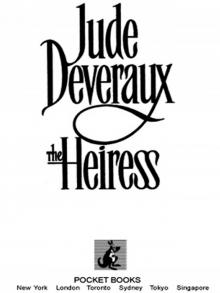 The Heiress
The Heiress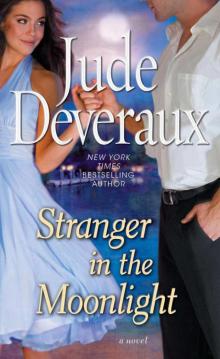 Stranger in the Moonlight
Stranger in the Moonlight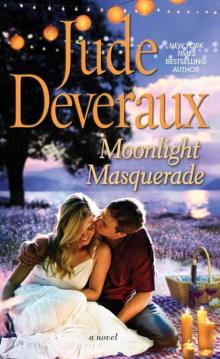 Moonlight Masquerade
Moonlight Masquerade Change of Heart
Change of Heart The Awakening
The Awakening Velvet Song
Velvet Song Someone to Love
Someone to Love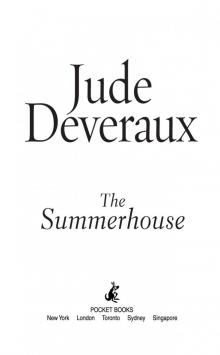 The Summerhouse
The Summerhouse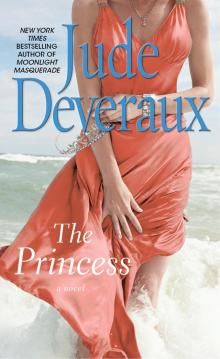 The Princess
The Princess Highland Velvet
Highland Velvet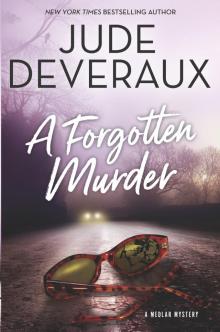 A Forgotten Murder
A Forgotten Murder Lost Lady
Lost Lady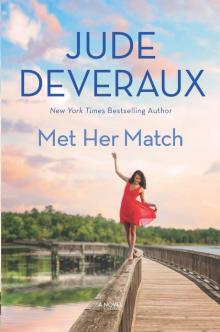 Met Her Match
Met Her Match LEGEND
LEGEND Forever: A Novel of Good and Evil, Love and Hope
Forever: A Novel of Good and Evil, Love and Hope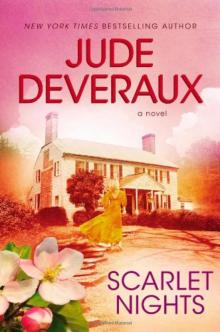 Scarlet Nights: An Edilean Novel
Scarlet Nights: An Edilean Novel